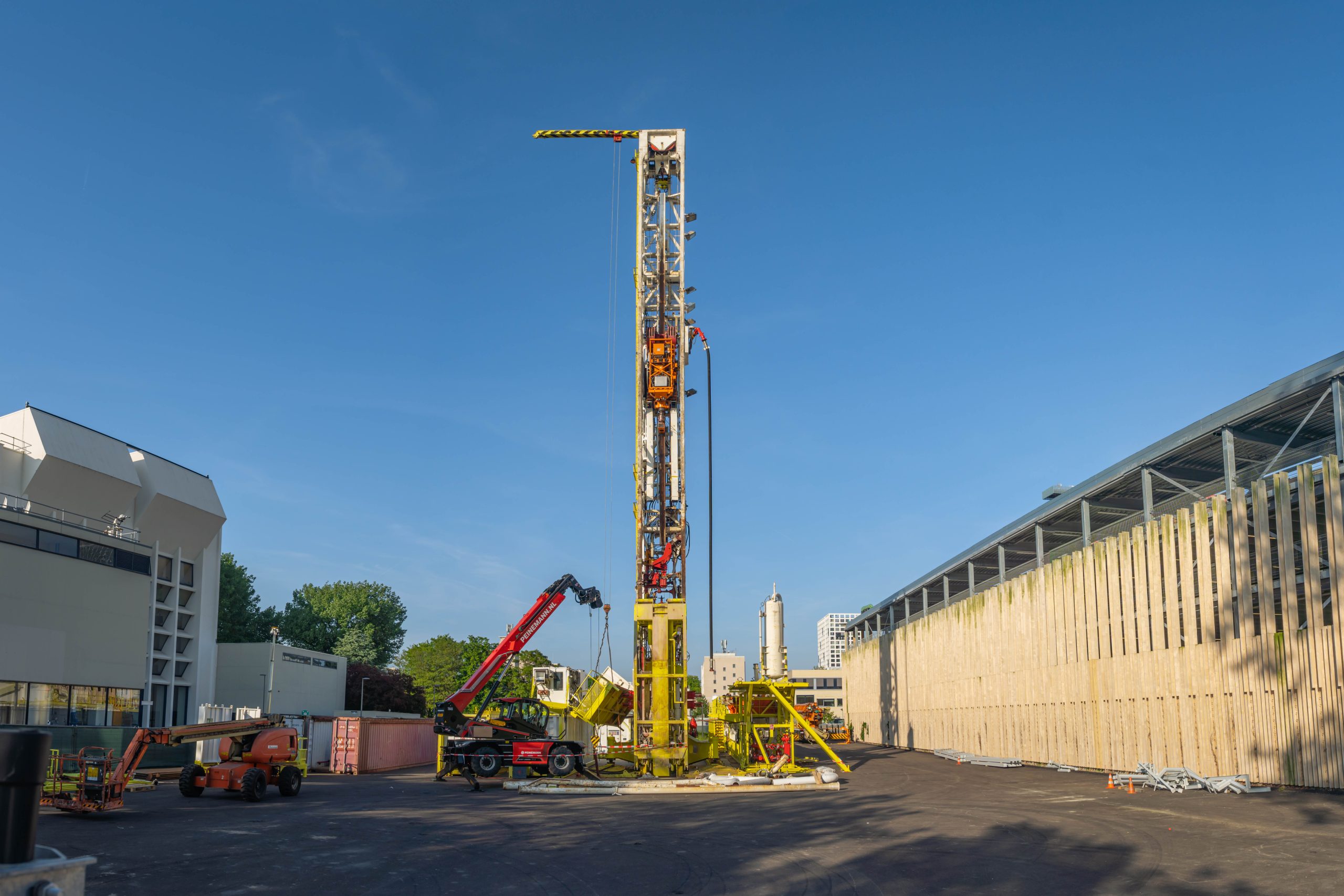The supreme court’s judgement last week that the subsidy that TU Delft received in 2017 for geothermal research was rightly reclaimed. The subsidy amounts to hundreds of thousands of euros.
Photo to illustrate. Drilling on campus in June 2023 for the Geothermie Delft project. (Photo: Thijs van Reeuwijk)
A subsidy that the state reclaimed from TU Delft in 2021 was justifiably reclaimed. This was the judgement (in Dutch) of the Netherlands Commercial Court (NCC), the supreme court on law, last week after TU Delft had appealed after a previous judgement.
The subsidy worth EUR 5.2 million was granted to a partnership between TU Delft, Akiet B.V. (later Huisman Well Technology) and Wayland Energy B.V. Of this, EUR 798,968 was for TU Delft.
The money was for the CRECCIT research project. This acronym stands for Cost Reducing Enhanced Composite Casing Installation Technology. It involved research into and the development of a drilling method for geothermal heat. It would also include research into the use of lightweight and corrosion-proof composite cleats.
Lower amount
But the project never went beyond the initial preparations. The verdict states (in Dutch) that in June 2020 the partners wrote to the Minister of Economic Affairs and Climate that the test phase would not go ahead. The organisations involved requested the Minister to set the subsidy at a lower amount. This meant just under EUR 500,000 for TU Delft instead of the initial EUR 800,000.
But things went differently. The Minister set the subsidy for TU Delft at EUR 0 in March 2021. TU Delft would only incur costs when the test phase would start, which never happened. That costs had previously been incurred was, for him, not a reason for granting a subsidy.
TU Delft allegedly incurred the preparatory costs ‘on its own initiative’
After TU Delft had filed an objection, it received a bit of a subsidy to cover part of the costs. This covered ‘the time spent by the professor in hiring research staff’ and ‘defining the hardware’ and amounted to EUR 10,902. The judge said that the other costs were not eligible for subsiding.
No ‘required continuity’
This was the reason for TU Delft to appeal. TU Delft said that there had not been any ‘required continuity’ of phases and that it would have been reasonable if subsidies for successive phases would be given before each phase started. The court also believed that TU Delft’s costs for the preparatory research had ‘made a contribution to the sustainability goals’ of the project. But TU Delft believes that ‘the basic rights of TU Delft as a recipient of subsidies’ had been infringed.
But the Minister said that building the geothermal unit was a precondition for receiving the subsidy. TU Delft allegedly incurred the preparatory costs ‘on its own initiative’, the court ruling describes. The Minister also says that the project plan does show a set order of phases. In other words, TU Delft should not have spent so much money on the subsequent phases while the first phase was not yet complete. It had thus taken a risk.
The supreme court judge agreed with this. In its verdict of 25 June 2024 (in Dutch), the NCC believes that the Minister rightly ‘assumed successive phases’. ‘TU Delft did not prove that additional preparatory costs had been incurred that are related to the geothermal unit or the development thereof, while this has not been built.’



Comments are closed.